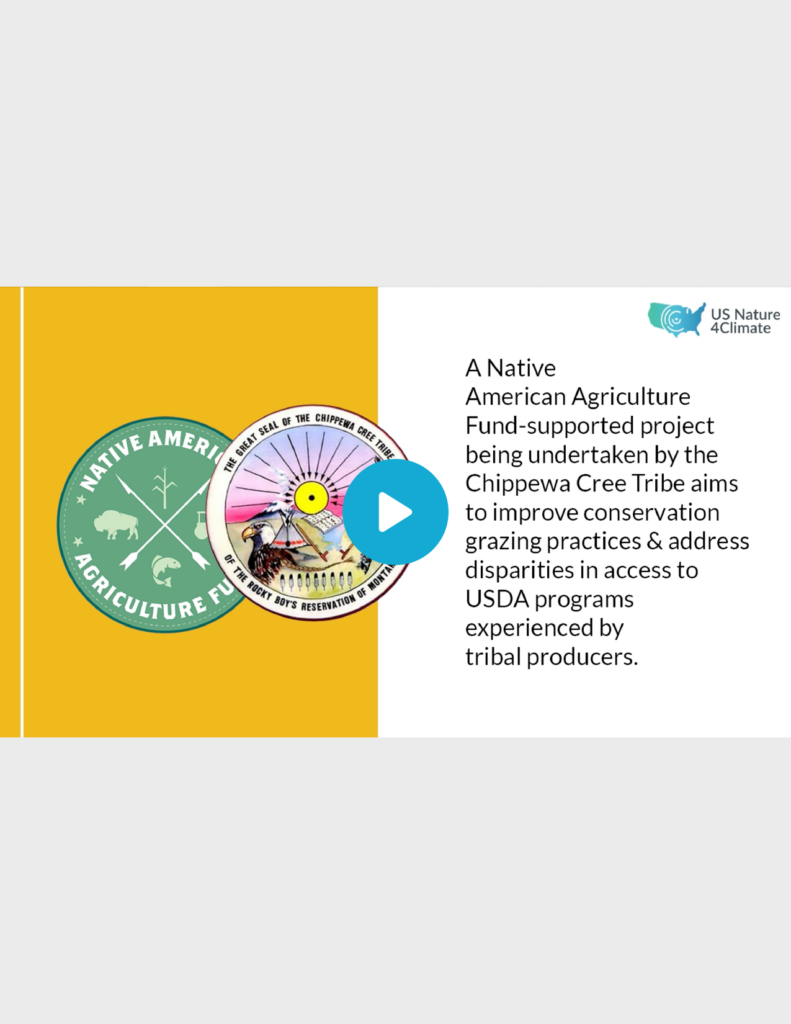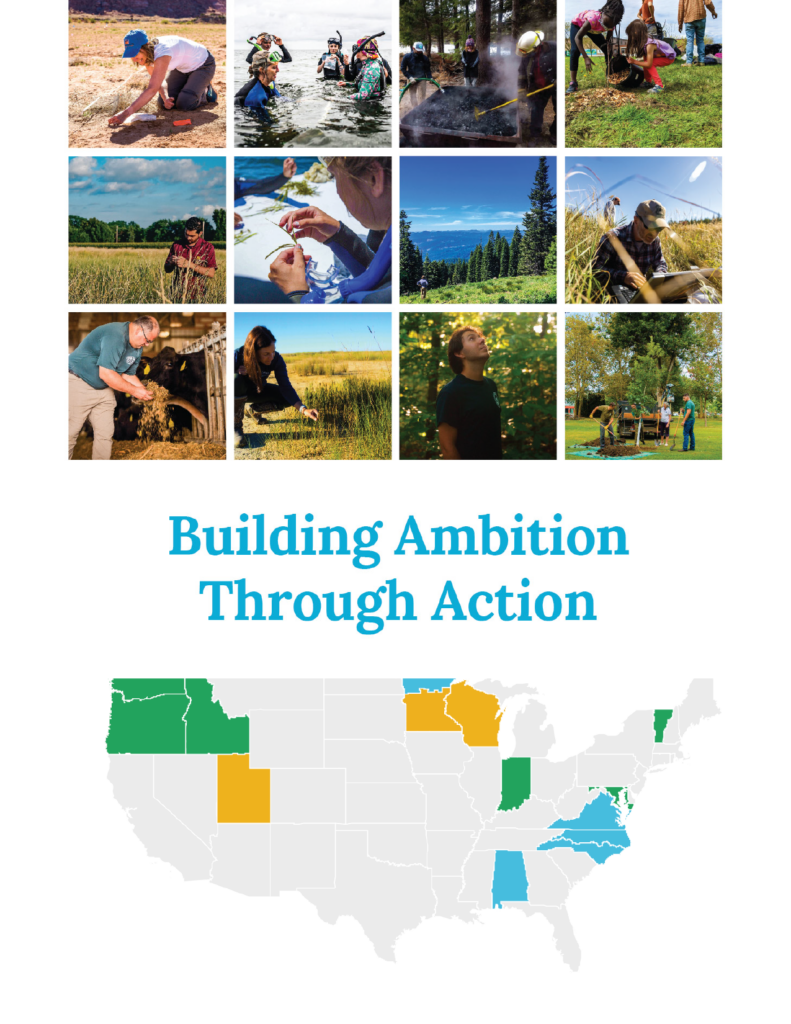Last updated on February 10th, 2025

From the sweeping landscapes of the Chippewa Cree Tribe, a third-generation rancher named Leon LaSalle is tenaciously advocating to reshape the narrative for tribal producers. In an exclusive conversation with the Native American Agriculture Fund, a private funding organization dedicated to increasing access to capital for Native American producers, Leon delves into the triumphs and trials of their groundbreaking grant project aimed at enhancing conservation grazing practices and overcoming the barriers faced by tribal producers in accessing U.S. Department of Agriculture (USDA) programs.
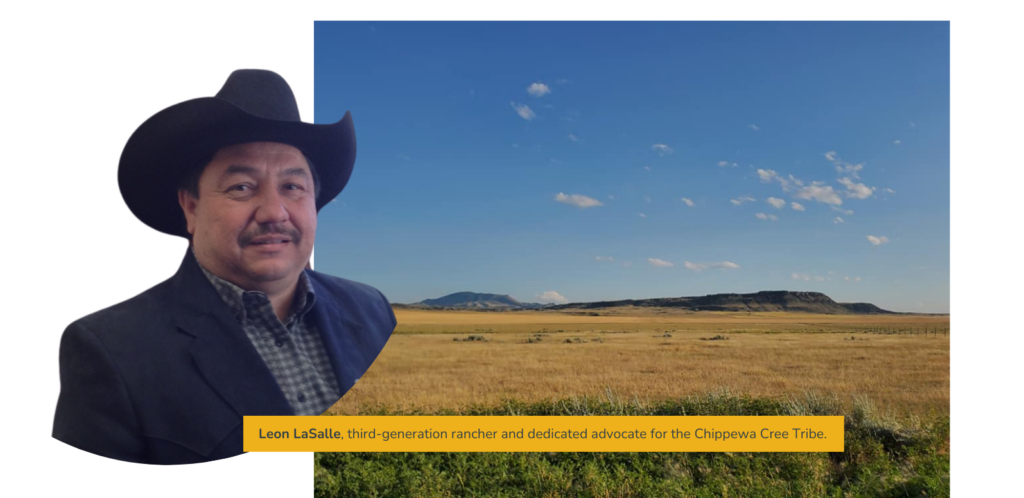
Confronting The Drought Dilemma
As our climate changes and weather has become increasingly unpredictable, dealing with the impact of drought has become an increasingly pressing challenge for the Chippewa Cree and other tribes. Leon drove this point home in the interview, noting, “Droughts are a big deal, it’s an ongoing deal, and we know we have to plan for it, so that’s part of everything we are doing.” To mitigate the impacts of drought on tribal producers, Leon emphasized that proper infrastructure and management practices like the availability of forage and livestock water are important. However, tribal producers have historically faced difficulties accessing funding through USDA programs to enhance their conservation and climate mitigation practices.

Leon’s project focuses on climate-smart conservation practices and advocacy, aiming to enhance conservation grazing on tribal lands and improve tribal producers’ access to USDA programs. Additionally, the project assesses the potential for carbon sequestration through grazing systems. In the interview, Leon underscored the significance of data sharing across reservations in Montana and neighboring regions. “Hopefully, this project will come up with data and positive results that can be shared within my reservation, with neighboring reservations, and across the whole country.”
The project also provides a wide range of environmental benefits, including improved water quality and quantity, enhanced soil health, and the potential for carbon sequestration. Economically, improved stability and less reliance on emergency measures during droughts reduce the financial burdens faced by the Tribe.

Sovereignty Into Action: Catalyzing Change Through Innovation
Leon’s motivation for supporting the project was to address the longstanding struggles of tribal producers with USDA programs. “As an ex-employee of NRCS, I had witnessed first-hand tribal producers and tribal entities struggle with USDA programs and their implementation. One of my big drivers was to see if we could do something more than what the USDA was doing for tribal producers.” The Chippewa Cree Tribe fully supports this initiative, aiming to improve opportunities not only locally but also for tribes across the country.
During the interview, Leon also discussed the challenges tribal producers face due to USDA program constraints, highlighting the project’s success in negotiating alternative funding arrangements (AFAs) under the 2018 Farm Bill. This achievement allows tribal producers to receive a full 90% cost share, addressing previous disparities where perceived cost shares were often 50% or less. “We have helped the Chippewa Cree Tribe and the Fort Belknap Indian Community successfully negotiate the two first alternative funding arrangements in the entire United States under the 2018 Farm Bill. Those are important because now in those arrangements, tribal producers are able to get a full 90% cost share. Under the old system, producers were led to believe they were getting 90% cost share, but because those were based on region-wide costs NRCS provided, most of the time those cost shares were 50% or less. This was leading to many producers canceling contracts and not moving forward. I think we’ve really opened up an avenue and set up a template that other tribes can follow and negotiate their own arrangements.”
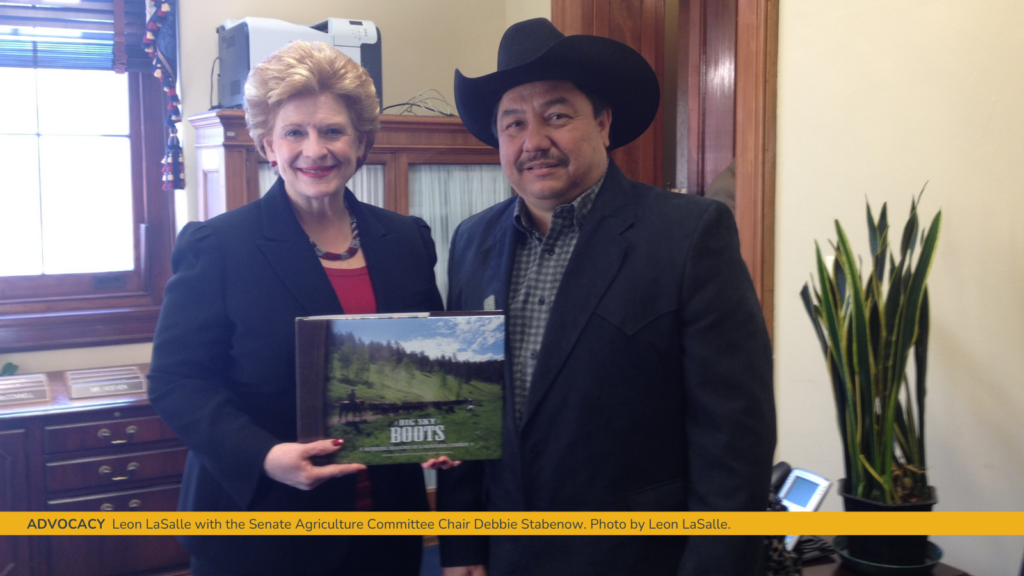
The negotiated funding arrangements with the federal government exemplify tribal sovereignty in action. The AFAs can enable tribes to address the distinctive priorities of their communities. Considering the diverse cultures and environmental factors inherent to each sovereign tribal nation, it is imperative that tribes are at the forefront of decision-making in these processes, ensuring the implementation of programs align with the cultural values and needs of their tribal producers and community members.
Increasing Equitable Access to Farm Bill Programs
Leon also pointed out the need for several policy changes, including adjustments to livestock assistance programs, improved funding for tribal historic preservation offices, and affordable crop insurance options for tribal producers. He stressed that the upcoming Farm Bill provides an important opportunity for addressing these challenges. To scale up efforts in conservation and access to Farm Bill programs, Leon emphasized the importance of expanding the network of technical experts who can assist tribal producers. He also urged the involvement of private organizations to complement federal agency efforts. “To build upon success, we need to expand the network of technical people who can carry this work forward. It’s through private work that this will happen, and the federal agencies will not be our savior, we need to empower more organizations like the Intertribal Agriculture Council into the field that can assist tribal producers. It is time to break the stereotypical mold and come up with a different model. We need more people to help producers get it done on the ground.”
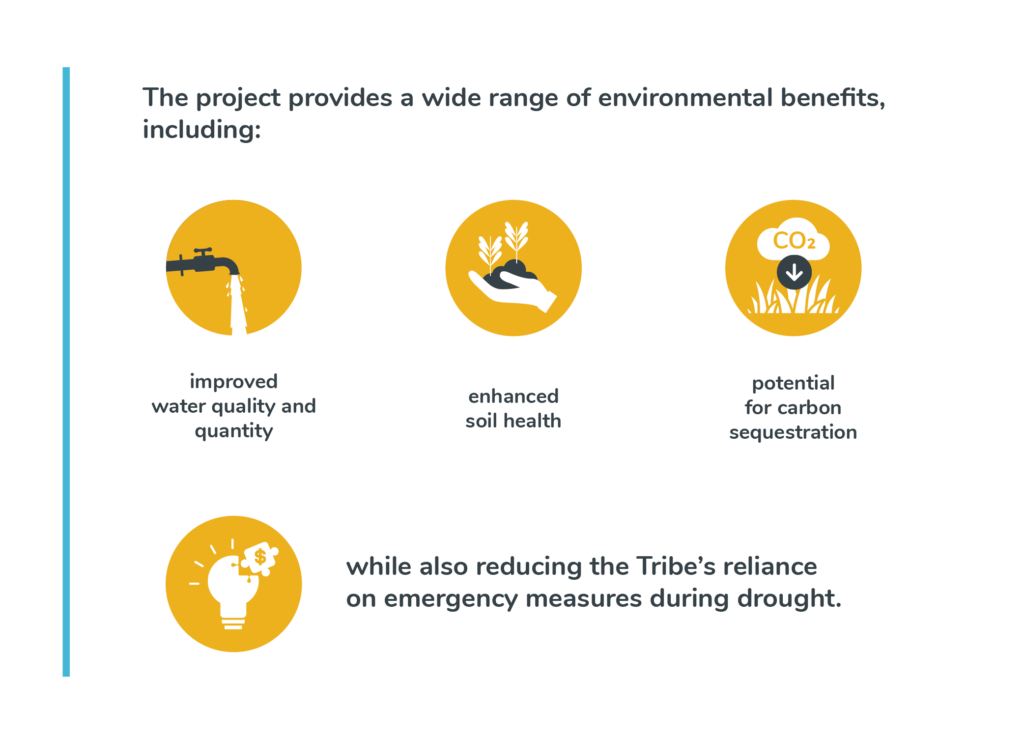
Leon’s favorite memory from the grant project was successfully negotiating historical agreements with USDA, particularly AFAs, and changes to grazing management standards. “When we started that negotiation, it started from “this is our standard and this is what you have to do,” to “we can’t do that and we need a different avenue and maybe we need to involve other people in the negotiation,” to finalizing a process that opens the door for a lot more tribal participation through EQIP, CSP, and CRP. We were miles apart initially, but what is important is that it was achieved in support of tribal producers. These changes we are making now are forever, they are historic changes that will go on for future generations of tribal producers.”
Leon LaSalle’s dedication to advancing conservation practices and advocating for tribal producers is truly inspiring. His insights and experiences shed light on the challenges and opportunities in achieving a more equitable and sustainable agricultural landscape for Native communities, illuminating a path forward.

